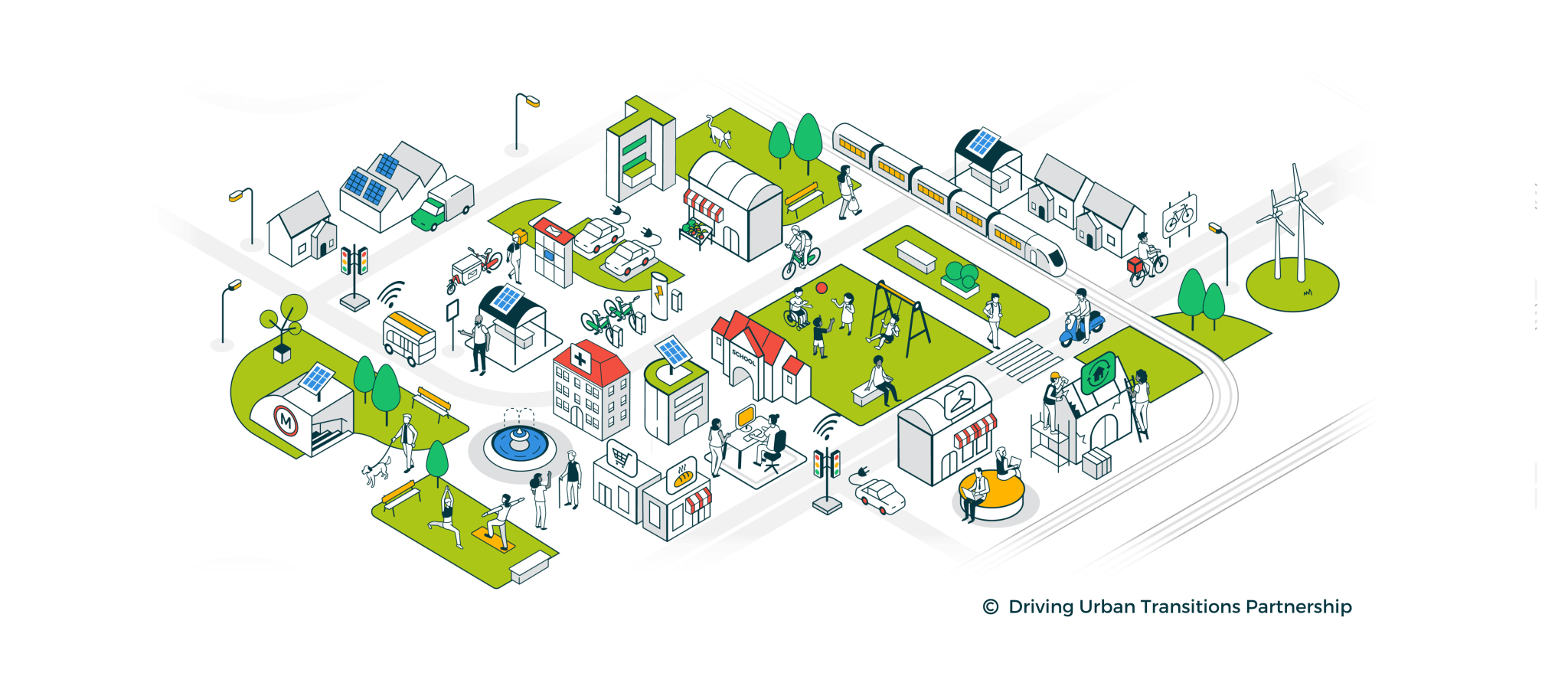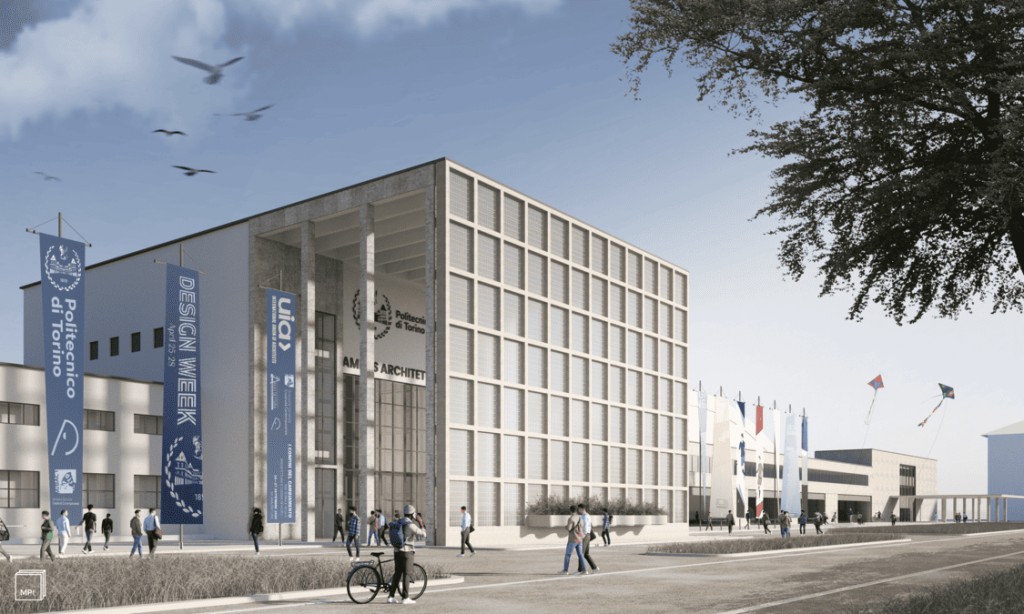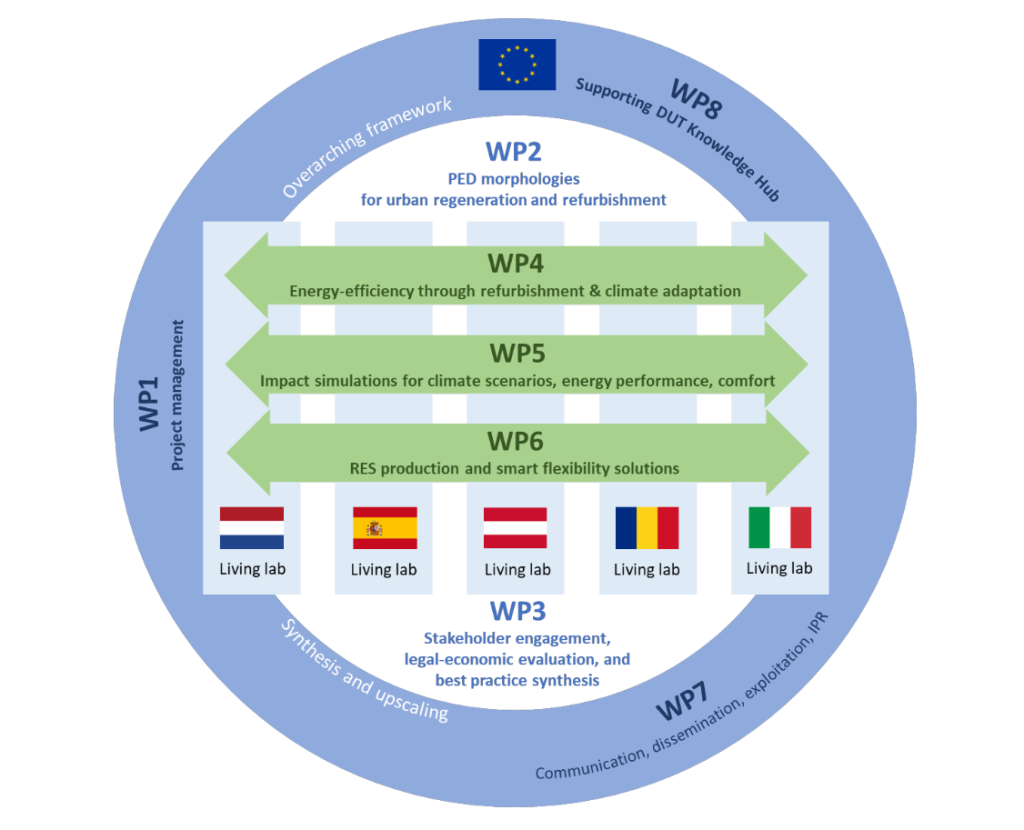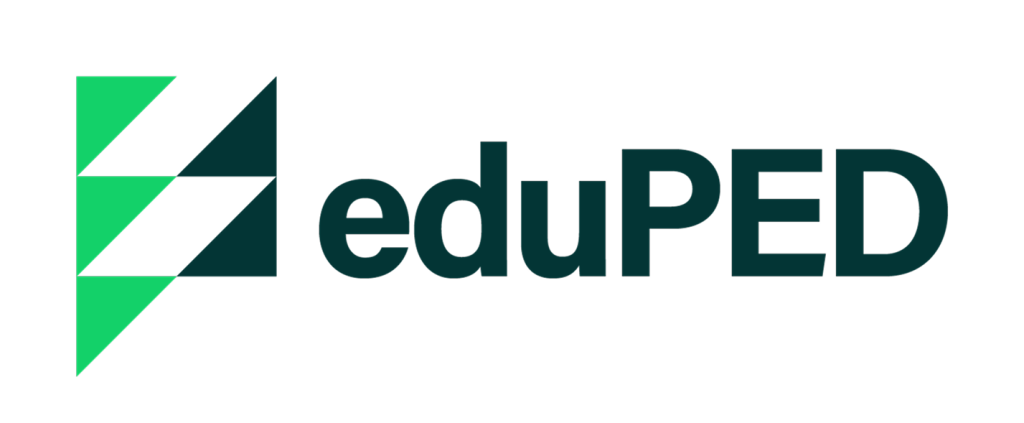We are accelerating Positive Energy District transition through educational campuses

What does eduPED stand for?
To reach the EU’s 2050 climate targets, educational institutions are key actors in the transition to a sustainable and climate-resilient built environment. With their diverse building stock, communities, and strategic urban locations, university campuses are uniquely positioned to become real-life laboratories for Positive Energy Districts (PEDs).
eduPED accelerates this transition by applying urban morphological approaches to renovate buildings, rethink neighborhoods, and upgrade energy infrastructures across five European living labs.

Part of the EU’s Driving Urban Transitions Programme
Driving Urban Transitions (DUT) is a European innovation programme focused on transforming cities towards sustainability. The programme addresses urgent challenges such as climate neutrality, energy transition, and inclusive development.
eduPED operates under this framework, aiming to develop sustainable renovation models, integrate smart energy systems, and create educational tools for better urban futures.
Why do we base our approach on educational campuses?
Universities are compact, diverse, and innovation-driven spaces — ideal for experimenting with and implementing sustainable solutions at district scale.
eduPED leverages their potential to:
- Renovate buildings and reduce energy use
- Integrate smart, flexible, and renewable energy systems
- Engage students, staff, and local communities
- Create blueprints for sustainable cities

Our objectives
PED refurbishment and regeneration strategies based on urban morphologies
Orchestration of co-creation processes with PED stakeholders
Reducing energy consumption through deep retrofitting at district level
Mitigating climate-change effects on extra energy demands
Maximizing local Renewable Energy Sources (RES) and smart multi-commodity grids
Disseminating, valorizing, and exploiting knowhow through DUT Knowledge Hub
eduPED in action
The project runs from December 2024 to December 2027 and is structured around 8 interconnected work packages:
Project Management (WP1)
PED Morphologies (WP2)
Studies how the shape of cities influences energy use and regeneration strategies.
Stakeholder Engagement (WP3)
Involves citizens, municipalities, and experts in shaping local PED plans.
Energy Refurbishment (WP4)
Develops retrofit and adaptation strategies for energy-efficient buildings.
Climate modelling for PED (WP5)
Simulates how districts respond to future climate scenarios.
RES production and smart flexibility solutions (WP6)
Develops retrofit and adaptation strategies for energy-efficient buildings.
Communication & Impact (WP7)
Support to the DUT Knowledge Hubs (WP8)
Provides strategic input to the DUT Knowledge Hubs and represents eduPED within the broader European PED community.

Intended impact
eduPED not only prepares educational institutions for a sustainable and circular future, but also actively contributes to creating resilient and carbon-neutral built environments.
Pioneering institutions
Renewable urban energy
Energy & emissions reduction
Scalable PED models
Next-generation experts
We train students, teachers, and professionals in implementing PEDs – combining technical, social, and economic expertise.
Bridging research and action
Technical knowledge is translated into practical solutions for cities and communities.
